There can be your advertisement
300x150
How to Choose Curtains Properly: Designer Tips
Curtains are not just comfort, but also practicality. They protect the room from sunlight, dust, night lights, circulation of cold (warm) air and other factors. Therefore, choosing curtains should be done responsibly. How? Interior designer Daria Piko shares her insights.
Daria Piko is an interior design studio director, inspired by her work in the Italian studio CaberlonCaroppi.
What to consider when choosing curtains?
- Curtains with horizontal contrast prints visually expand the room, while vertical patterns make it appear longer.
- If you don't want the curtains to touch the floor, leave a 5–8 cm gap between the edge of the curtain and the flooring. If you prefer them to touch the floor, they should extend 15–20 cm beyond the wall height.
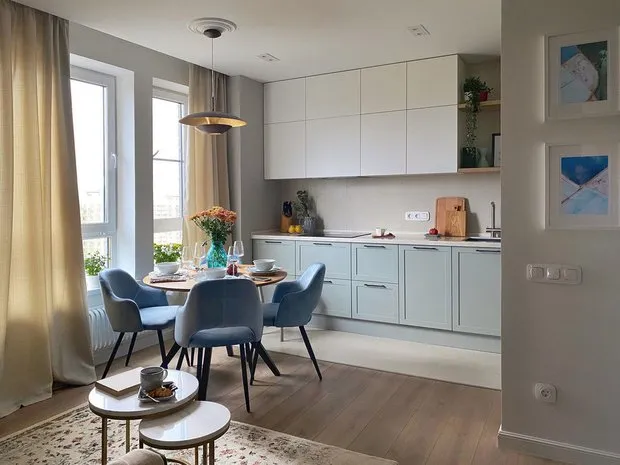 Design: ONE LINE Studio
Design: ONE LINE Studio- Small window sills? Avoid covering them with curtains as it makes the room look heavier.
- For low ceilings, choose curtains made from light-colored fabrics in soft tones.
- Long drapes are not suitable for children's rooms, kitchens or studies; consider Roman blinds or French curtains instead.
- Long light-colored drapes enhance and adjust the proportions of small spaces. Dark curtains in large rooms create a cozier, more intimate atmosphere.
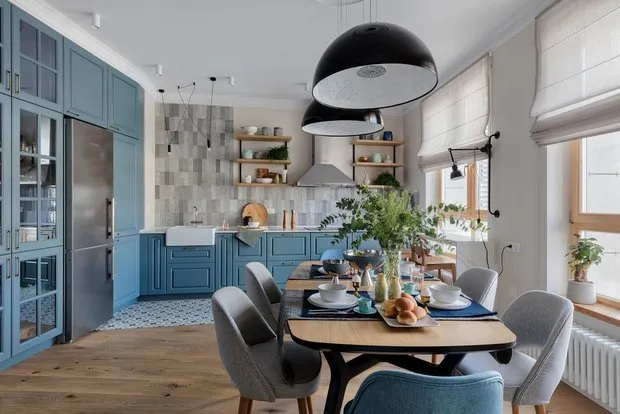 Design: Yana Gurova
Design: Yana GurovaHow to Choose the Right Color for Curtains?
If you're not planning to change the furniture soon, match your curtains to the furniture color. This is one of the most popular trends among designers today. In such cases, choose curtains in a color similar to or slightly contrasting with the furniture.
A neutral tone is an excellent choice for curtains—think sand, beige, cream or natural hues. These always look elegant and unobtrusive.
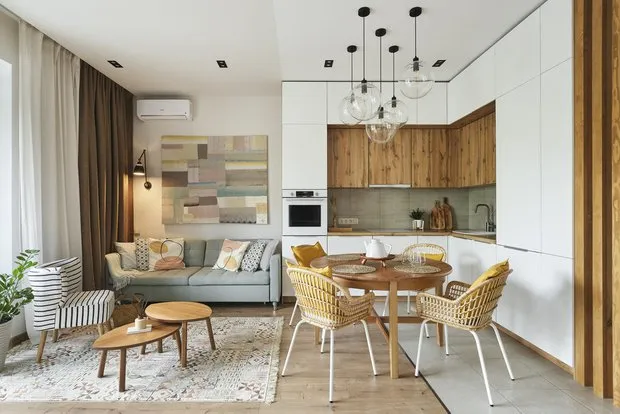 Design: Denis Ryzhkov
Design: Denis RyzhkovIf your room’s interior is in a single color, the curtains should slightly contrast the overall tone. In other words, select curtains that don’t blend with the furniture or wallpaper. It’s best to choose curtains one or two shades lighter or darker than the room's color scheme.
Two-tone curtains are also very popular—they blend beautifully with any room's color palette.
Pro Tips You Should Know
To visually add warmth to a room, hang curtains in warm tones like sage, yellow, brown, beige, gold, orange, or yellow-green. If the room faces north, this is an essential option. Warm tones also visually bring the window closer and make it appear larger.
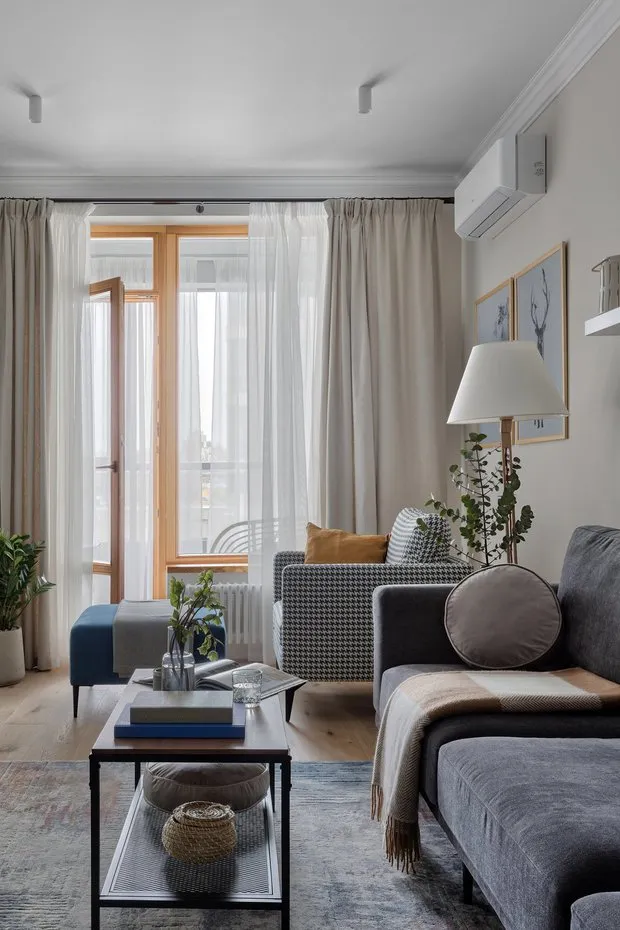 Design: Yana Gurova
Design: Yana GurovaCold colors like blue, sky blue, lilac, neon, sapphire or turquoise are ideal for rooms facing the sunny side. These cool tones evoke a sense of freshness and visually push the window away.
To avoid making the window look narrow or small, hang curtains on a rod that extends about 20–25 cm beyond the window frame on both sides.
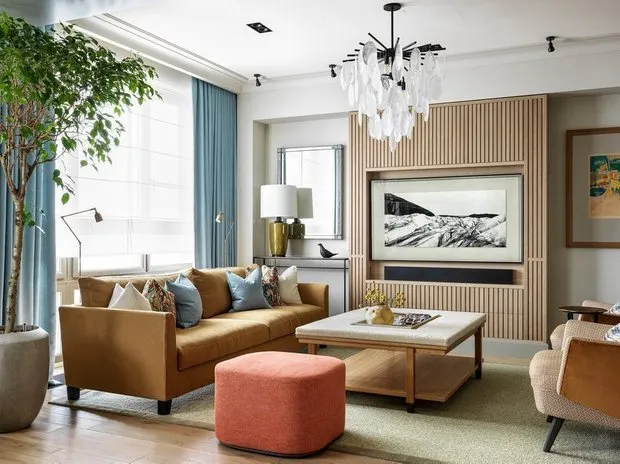 Design: Anna Pavlovskaia
Design: Anna PavlovskaiaHigh ceilings can be visually lowered using curtains that hang at the level of the window. For even more impact, use bright and vivid shades. Adding lamination or tassel details can also draw attention away from tall walls.
If the window is low in relation to the ceiling, raise the rod as high as possible and hang the curtains so they reach the floor. This visually extends the window and makes it appear taller.
Curtains for Different Rooms: What to Consider
Bedroom
Choose curtains in colors that don’t stand out from the overall interior. Focus on calmer, less dominant tones to create a peaceful and comfortable atmosphere.
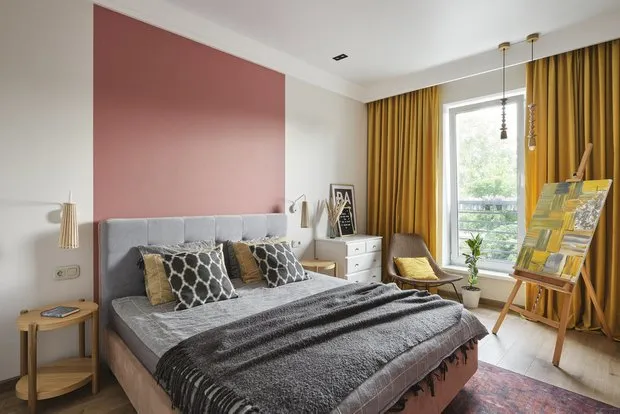 Design: Denis Ryzhkov
Design: Denis RyzhkovLiving Room
Curtains here should be monochromatic in a classic style. Elegant additions include lamination, tassel details, or eyelets. If you prefer minimalism, hang regular curtains but ensure they look formal and impressive.
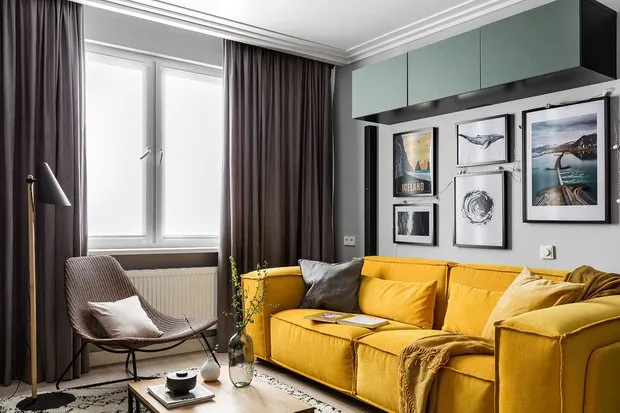 Design: Lares Design
Design: Lares DesignKitchen
Focus on practical and functional curtains rather than aesthetics. They should be made of durable fabric that’s easy to wash.
I personally like semi-transparent or light-colored curtains, and Roman blinds or French curtains are also great choices. Keep in mind the color: red stimulates appetite, while blue suppresses it.
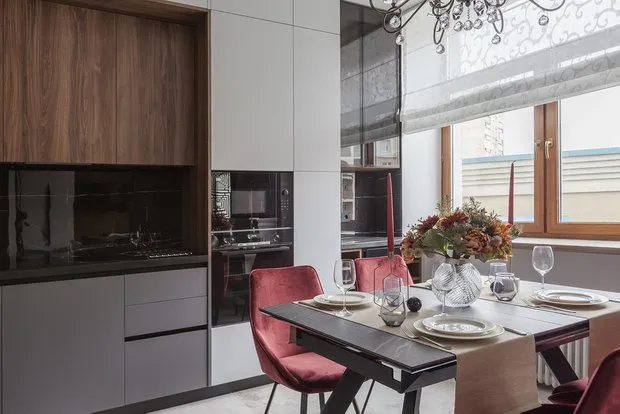 Design: Nadezhda Markotenko
Design: Nadezhda MarkotenkoStudy or Library
Curtains in a study or library should look formal, conducive to work, and yet create a cozy space. Dark green, emerald, dark beige, chocolate or burgundy curtains in classic style made from thick fabric are ideal.
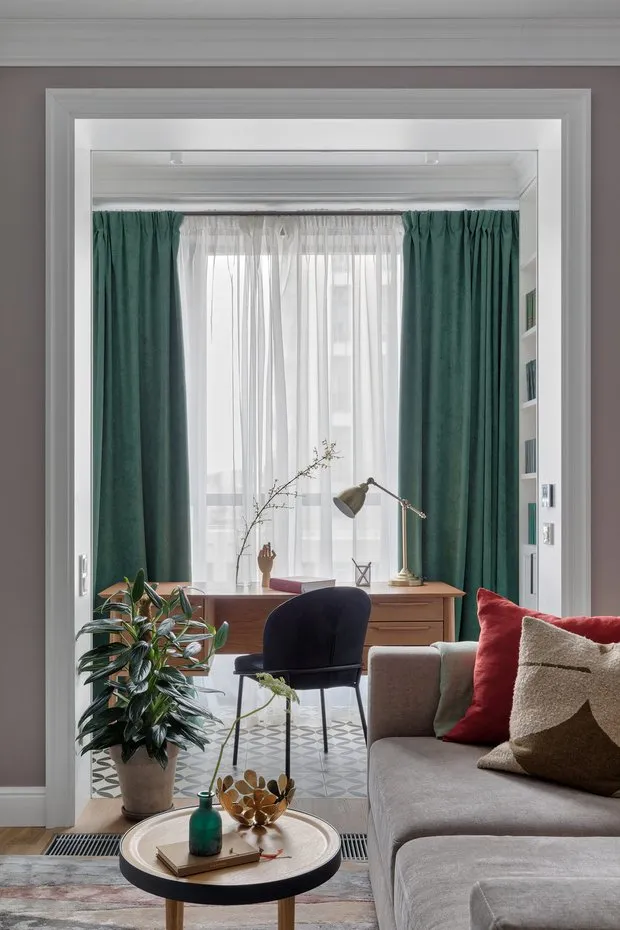 Design: Yana Gurova
Design: Yana GurovaChild’s Room
Vibrant, light-colored curtains with cheerful or whimsical prints are perfect for a child’s room. Just keep in mind that these curtains should be made of durable fabric, as they get stained and washed frequently.
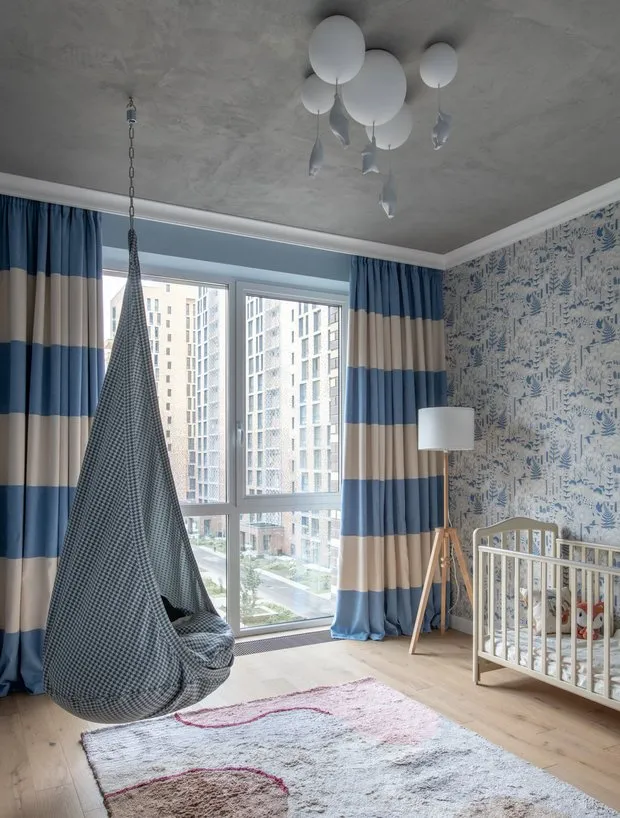 Design: Ludmila Danilovich
Design: Ludmila DanilovichMore articles:
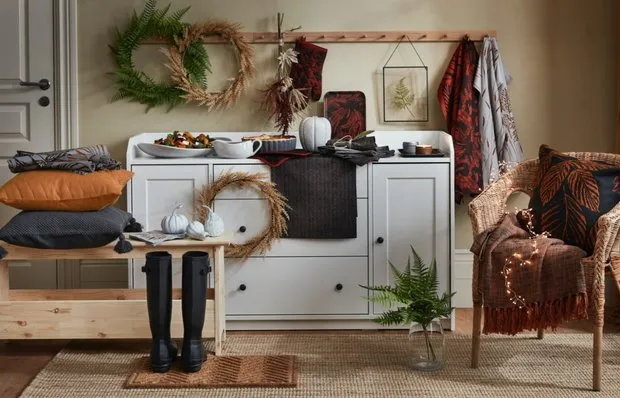 All IKEA: New Products You Can't Miss
All IKEA: New Products You Can't Miss Closing the Summer Season: 10 Important Tasks to Complete in October
Closing the Summer Season: 10 Important Tasks to Complete in October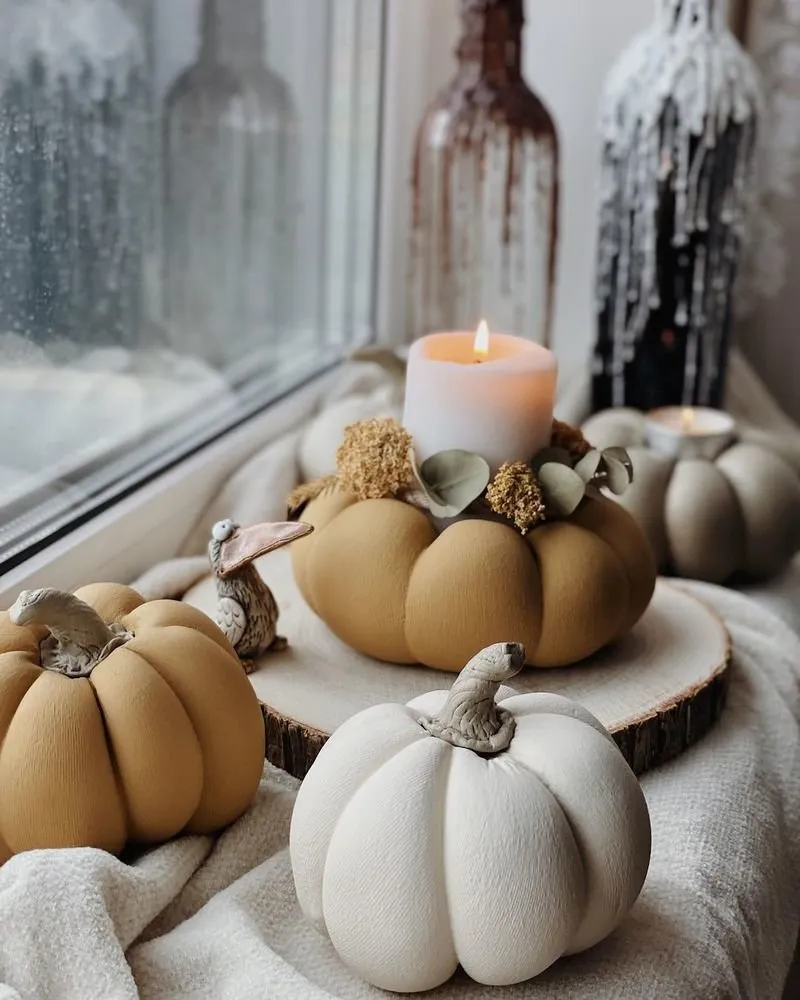 DIY Idea: Pumpkin Candle Holders Made by Hand
DIY Idea: Pumpkin Candle Holders Made by Hand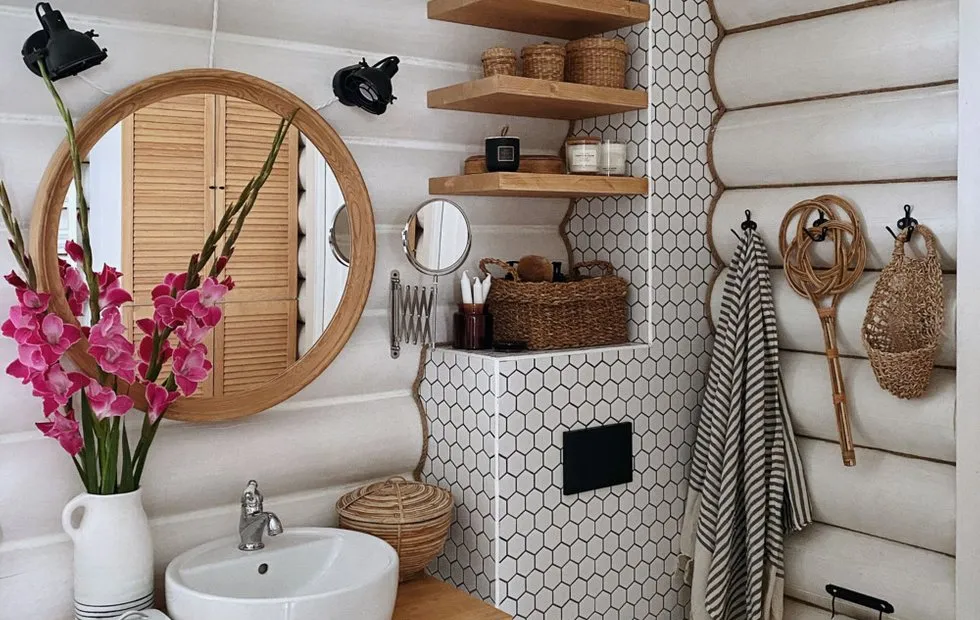 6 bathrooms that were renovated on a budget but turned out great
6 bathrooms that were renovated on a budget but turned out great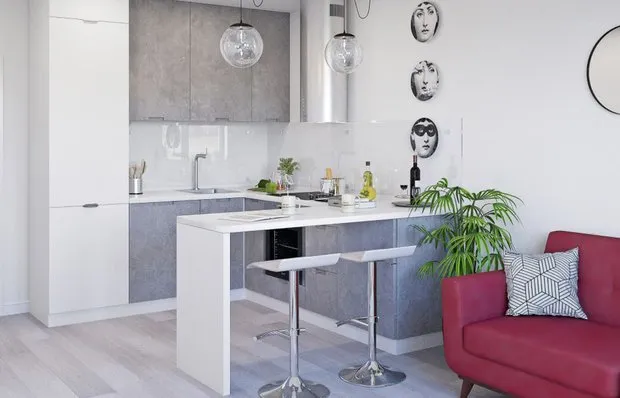 How to Choose an Expensive-looking Kitchen Without Breaking the Bank: Expert Tips
How to Choose an Expensive-looking Kitchen Without Breaking the Bank: Expert Tips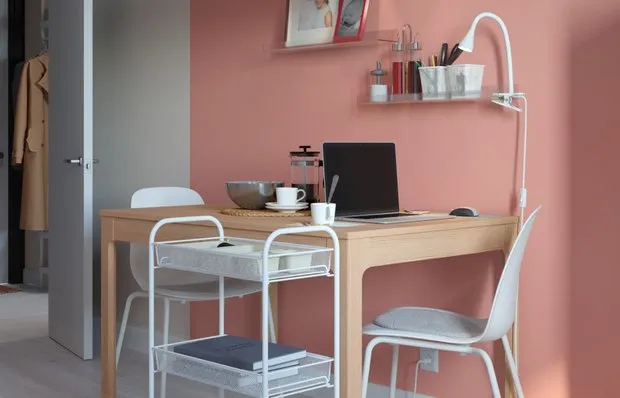 Top IKEA Ideas: How to Organize a Workspace Anywhere in Your Apartment
Top IKEA Ideas: How to Organize a Workspace Anywhere in Your Apartment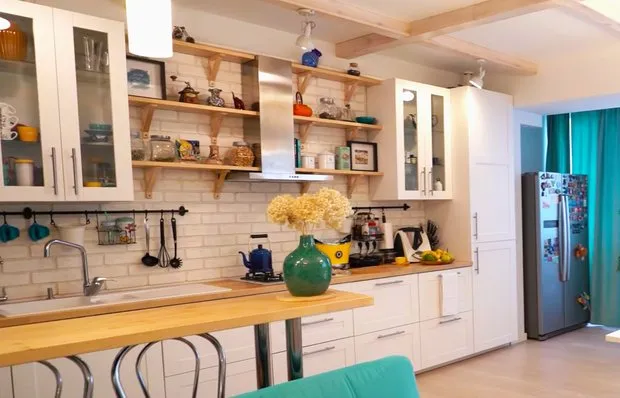 Spacious Kitchen-Living Room 35 m² in IKEA Style: 5 Interesting Solutions
Spacious Kitchen-Living Room 35 m² in IKEA Style: 5 Interesting Solutions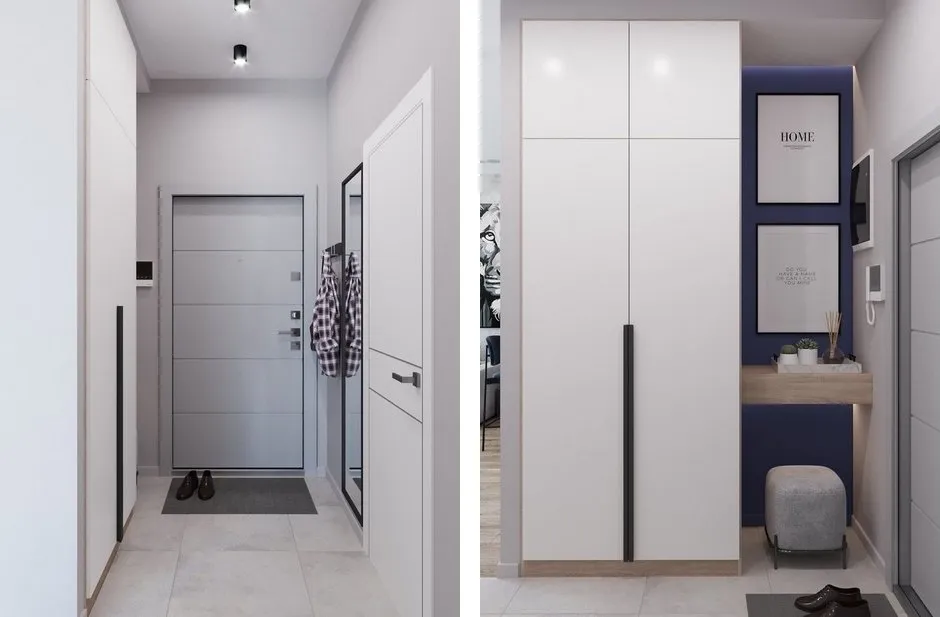 5 Most Convenient Mini Entryways from Projects
5 Most Convenient Mini Entryways from Projects